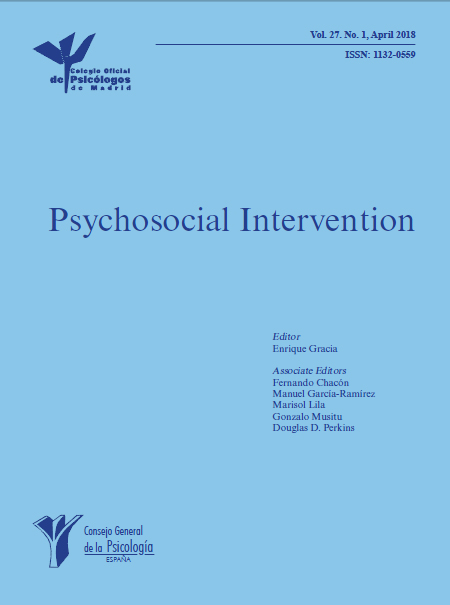
COOKIES POLICY
Cookies (information files that are stored on the computer of the person accessing the page), depending on who serves them, can be divided among their own cookies, served by this page (they are sent to the user from a team managed by the editor, that is, el Colegio Oficial de PsicĂłlogos de Madrid), and third-party cookies, served by other websites or services (they are sent to the user from a computer not managed by the publisher, that is, el Colegio Oficial de PsicĂłlogos de Madrid). Next we inform about the cookies served by this page and how to disable them and the consequences of this action.
Site cookies
This website uses personalization cookies, which are those that allow the user to access the service with some predefined general characteristics based on a series of criteria in the user's terminal, such as language, type of browser through the which accesses the service, the regional configuration from where you access the services.
Third party cookies
This website uses Google Analytics, a service provided by Google, Inc., which allows users to analyze the use of the website, exclusively for statistical purposes, so they can be considered analysis cookies, because they allow the person responsible for tracking and Analysis of user behavior on the website.
For these purposes, Google Analytics uses cookies. The information generated by the cookie to prepare the statistical information will be directly transmitted and archived by Google. To ensure anonymity, Google will convert your information into anonymous by truncating the IP address before storing it, so that Google Analytics is not used to locate or collect personally identifiable information from site visitors. Google may only send the information collected by Google Analytics to third parties when it is legally bound to do so. In accordance with Google Analytics service provision conditions, Google will not associate your IP address with any other data retained by Google.
The cookies are at session (which allow to know the browsing experience and expire when the user closes the browser, therefore no personal data is kept).
If you continue browsing we consider that you accept the use of cookies, the consent given will be considered valid for this web page, you can change the configuration following the following instructions:
How to disable cookies
The registration of our cookies may be subject to the acceptance of cookies by the user during the installation or updating of the browser used, and this acceptance may at all times be evoked through the content configuration options and privacy available.
Most browsers currently allow the user to configure if they want to accept cookies and which ones. These settings are usually found in the 'options' or 'Preferences' menu of your browser.
The User will find the steps to access the configuration menu of the cookies and, where appropriate, the private browsing in each of the main browsers in following instructions:
- Internet Explorer: Tools -> Internet Options -> Privacy -> Configuration. For more information, you can consult Microsoft support or browser Help.
- Firefox: Tools -> Options -> Privacy -> History -> Custom Settings. For more information, you can check Mozilla support or browser Help.
- Chrome: in the Options section> Advanced options> Privacy. Find out more http://support.google.com/chrome/bin/answer.py?hl=en&answer=95647
- Safari: Preferences -> Security. For more information, you can Chrome: Settings -> Show advanced options -> Privacy -> Content settings. For more information, you can check Google support or browser Help. Check Apple support or browser Help.
Assessing Job Performance Using Brief Self-report Scales: The Case of the Individual Work Performance Questionnaire
READ MORENot All Telework is Valuable
READ MOREDesde el burnout al engagement: Âżuna nueva perspectiva?
READ MOREImpact of Online Training on Behavioral Transfer and Job Performance in a Large Organization
READ MOREAssessing Job Performance Using Brief Self-report Scales: The Case of the Individual Work Performance Questionnaire
READ MORELa TeorĂa de las Demandas y Recursos Laborales: Nuevos Desarrollos en la Ăšltima DĂ©cada
READ MOREA Systematic Review of Evidence-based General Competency Models: Development of a General Competencies Taxonomy
READ MORENot All Telework is Valuable
READ MOREDesde el burnout al engagement: Âżuna nueva perspectiva?
READ MOREUse these links to submit an article to the Journal of Work and Organizational Psychology
EMAIL ALERT
THANK YOU!
Your request has been saved
Journal of Work and Organizational Psychology is licensed under a Creative Commons Attribution-NonCommercial-NoDerivatives 4.0 International License

We use our own and thirdÂparty cookies. The data we compile is analysed to improve the website and to offer more personalized services. By continuing to browse, you are agreeing to our use of cookies. For more information, see our cookies policy
Aceptar







